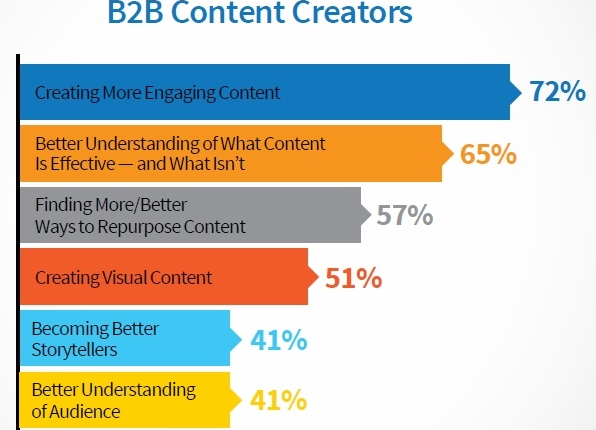Search engine optimization is one of the quintessential ways you can rank high for organic search traffic (mostly from Google), but in terms of the bigger marketing picture – SEO itself is a means to an end. Knowing how to get traffic to your website is the main goal here, it’s the foundation.
Because, you’re not really going to have any conversion rates if you don’t have any traffic in the first place.
Once you have a solid amount of following and a fair amount of traffic flowing to your website, you can then focus on retaining that said traffic and converting it into sales.
Without traffic, you won’t go anywhere – in terms of SEO, growth, sales, and more.
It’s the building blocks of your website and the growth of your business.
And for that – SEO is not the only way.
In this guide, we’ll be looking at a few tactics and marketing strategies you can implement in your business to attract, and retain organic traffic – without relying on SEO.
Let’s begin!
1. Social media
If you’re not on social media – you’re missing out.
Missing out on learning about your target market, high engagement, having an additional platform to advertise your product or service on, and much, much more.
Regardless of your industry, you need to be where your customers are. You need to be there, engage them, contribute value, and establish yourself as an expert in the field. Only then will you be rewarded.
In other words, give before you ask (or “Jab, Jab, Jab, Right Hook”).
How does this apply to social media?
Well, think about how people use social media.
What’s the first thing most people check whenever they wake up?
Chances are, your customers use social media from their phones every day, but give attention and love only to a select few brands. They’re bombarded with ads and brands asking for “likes” every day of their lives, but customers only support the brands they resonate with.
To establish a caring relationship with your customers, you have to show that you care.

And social media is the best place to do so. Treat them like people. Take the time out of your day to appreciate them. Give them value that’s educating and entertaining – and it’s only a matter of time until they fall in love with your brand.
This takes times time and more importantly, consistency. The brands who have garnered their customers’ love and affection have been at it for some time. It takes patience for it to pay off.
Of course, this is only the tip of the iceberg of the social media giant. The truth is, there are many platforms – you can’t be on there all.
So, the question you need to ask yourself is – where is my audience?
Go there. Establish yourself as a valuable presence and gather a following before asking for anything. If they enjoy your content, they’ll enjoy your offerings as well.
2. Guest blogging
Guest blogging is a small part of your bigger inbound marketing strategy and an essential one as far as building relationships and discovering new audiences go.
This tactic is also equally useful if you’re just starting out and don’t have a lot of visitors to begin with.
When blogging, you want authority, qualified and relevant traffic, engagement, motivated leads and more. But it can be hard to get all of that when you don’t have an established following.
So, where do you find a relevant audience within your niche who wants to get to know you more?
First, you look for blogs in the same niche as you, and then outreach to them, saying how much you enjoy their website and content, and that you would love to do a guest post swap with them.
To do this, try googling “name of your niche” + “submit guest post” or “best blogs”, and then do outreach to them.
If you already have some following – that’s even better as the target blog would be more likely to do a swap with you. In this case, both of you are exchanging audiences and introducing them to relevant content.
You should be aiming for a win-win situation so that everyone involved (including each others’ audiences) benefit in the guest blog. While it might seem that you’re promoting a competitor and sending traffic their way – they’re doing the same for you, hence the reason it’s a win-win situation.
The challenge here, however, is to produce engaging and high-quality content that will make your new audience want to stay on your website and get to know you better.
You need to make sure people are actually reading your content.

Source: KOMarketing
There are two ways to do this:
First, make sure your content is actually great (original, easy to read, answers the question, etc.) so that your new found audience will want to stay on your website.
And secondly, be sure to include a strong call-to-action at the end (subscribe to a newsletter, book a demo, where they can find more information about you, so on), so that you retain the traffic.
To recap, with guest blogging, if done well, you should be targeting a whole new audience with your content and drawing them back to your site). Once they’re back, make sure everything is well optimized and the user experience is there.
3. Be active on Forums
If you can’t attract traffic to your site, go and engage them where they hang out.
Be it Stackexchange, Quora, or the relevant subreddit, get out there and start writing compelling answers to problems your users face within your niche.
Like with social media, this tactic only works if you do it consistently, as the more you answer, the more followers you’ll gain. Additionally, it’s a long-term strategy, only if you do it often and write high-quality answers each time, will you be rewarded with followers and new visitors.
And if you do it long enough, your answers can even go viral – which is all it might take for you to become recognized as an expert in your field.
Quora specifically is a very powerful platform because you’re sure to find people there within all niches. The website also happens to rank high on Google with a lot of questions, so, essentially, you’re getting the direct traffic from people on Quora (referral traffic), in addition to those finding your answer through Google (organic traffic).

To be successful on forums (whether it be Quora, Stackexchange, something else), make sure your profile is fully filled in and optimized so that people going there for the first time know what to expect. Make sure your title reflects what you do and your summary includes a link back to your site.
If someone likes your answer and goes back to your profile, they should have enough information on what you do and where they can read more about you or your business. Once they end up back on your website – you need to make sure they stay there.
Leveraging Quora traffic takes a lot of time and persistence. But if you’re a business owner, it’s also a great place to learn more about your target market.
The real power of online forums is finding your people and getting involved. The best thing though is that they’re free and you can learn more about your target audience.
Once you get to know them better and start interacting with them – you’ll gain more followers and have an additional place to promote your content on.
Conclusion
All in all, this post is not to undermine the strength of SEO – it’s still an essential digital marketing tactic, and ideally, you should also be using that in addition to a mix of the above.
But it’s important you know how to drive organic traffic to your website and that you don’t rely only on one tactic (e.g. SEO). If the Google algorithm changes and SEO is your primary source of traffic – this could be the end of your business.
To avoid that, you shouldn’t put all your eggs in one basket. By implementing a mix of marketing tactics to attract and retain traffic – you can be at peace knowing your traffic is here to stay.
And if one source of traffic fails you, you’ll have others to keep your peace of mind.
Traffic is essential for all businesses. But how you go about attracting it to your website can determine your worth.
So, as long as you’re trying different growth hacking tactics on how you can attract and regain traffic by offering high-quality content – then your business is on the right track!







